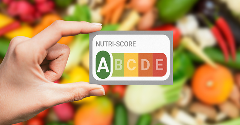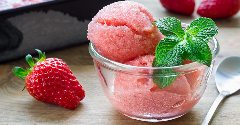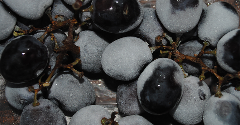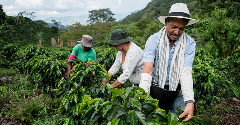News
Trends in The Beverage Market
29 Oct 2013Long gone are the days when beverages simply provided hydration. Beverage manufacturers are now jostling for a market edge in a crowded and vibrant market-place, which includes cold drinks, hot drinks, carbonated drinks, sports drinks, energy drinks, fruit juices, squashes and cordials, dairy-based drinks – the list goes on. Faced with such choice, consumers increasingly […]

Long gone are the days when beverages simply provided hydration. Beverage manufacturers are now jostling for a market edge in a crowded and vibrant market-place, which includes cold drinks, hot drinks, carbonated drinks, sports drinks, energy drinks, fruit juices, squashes and cordials, dairy-based drinks – the list goes on. Faced with such choice, consumers increasingly demand high quality, competitively-priced beverages, which deliver that ‘something extra’. This demand challenges beverage manufacturers to produce drinks that stand out from the multitude of competitor products.
Improving the consumer experience via the addition of flavourings is popular, and examples include flavoured waters, flavoured carbonated beverages, use of exotic fruit flavours, and flavoured lagers and ciders. However, more novel concepts are also emerging, such as bubble tea (a drink invented in Taiwan containing chewy Tapioca balls), hot sparkling drinks (Coca Cola Japan) and the use of aromas (PepsiCo).
Health also remains important, but with so many light/lite product versions available, it is unlikely that this will be enough to hold consumer interest for long. The perceived healthiness of low/no calorie beverages may also be somewhat negatively influenced by recent reports that consumption of drinks containing sweeteners could make you gain weight or increase the risk of developing diabetes. Despite a lack of convincing evidence from randomised controlled trials (the gold standard in clinical trials) to support these claims, this type of media message can be enough to dissuade consumers – as seen with aspartame.
Another approach to producing healthy beverages includes the addition of functional ingredients. This might include fortification with micronutrients, or perhaps the inclusion of novel ingredients. Key advantages when using beverages to deliver functionality include regular consumption (important to deliver benefits), high bioavailability (usually no complex matrix to impair ingredient absorption) and likely consumer acceptance of drinks as a delivery mechanism for health benefits.
Sports and energy drinks are also very popular with consumers. Sports drinks, aimed at athletes, typically focus on high protein and/or high energy and electrolyte content, although the provision of light options appears popular with the female market and those trying to control their weight. Energy drinks usually provide a high sugar content, as well as non-calorific energy sources e.g. caffeine, glucuronolactone, taurine, guarana and B-vitamins.
Consumption of sugar-sweetened beverages (SSBs), such as energy drinks, sweetened fruit juice, sweetened water etc. has been linked with weight gain and other health issues. Recent scientific reviews and meta-analyses seem to support this link, perhaps prompting an ethical question to manufacturers of SSBs. Many appear to be responding with changes in advertising practices and by offering healthier alternatives – in short, offering the consumer an informed choice.
Finally, the demand for clean label products is ever-increasing. A recent trend is the release of lower calorie beverages containing steviol glycosides, which may be perceived by the consumer as a natural sweetener. However, despite the hype surrounding steviol glycosides, they pose a number of technical issues to manufacturers (in particular their taste profile), and their extraction process prevents them from being truly natural.
There is clearly still a lot of opportunity for innovation in the beverage sector, in particular in the search for new, natural sweeteners whose taste profile more closely meets that of sugar.
Related news

UK to ban junk food TV advertisements before 9pm
3 Oct 2024
In a bid to reduce childhood obesity, the UK government has introduced a policy, coming into effect on 1 October 2025, banning junk food advertising on television before the 9pm watershed.
Read more
Which food and beverage brands made TIME’s Most Influential Companies list?
2 Oct 2024
Chickpea pasta, prebiotic sodas, food boxes, non-alcoholic beer, and a soil carbon marketplace are the specialties of the five food and beverage brands that earned a spot on TIME’s 2024 list.
Read more
New environmental food scoring standards emerge
30 Sep 2024
EIT Food and Foundation Earth collaborate to launch environmental food scoring for products entering the global supply chain.
Read more
Danone removes NutriScore from products
20 Sep 2024
Following an algorithm update that gives some of its sweetened drinks a worse score, Danone has removed the front-of-pack label, NutriScore, from all of its products – putting profit before public health, say campaigners.
Read more
Nestlé develops a new fat reduction method for dairy ingredients
26 Aug 2024
A Brazil-based Nestlé research and development team has developed a way to reduce the fat in milk powder by as much as 60%, without impacting the key characteristics that consumers enjoy.
Read more
Better Juice expands its range to sorbets
16 Aug 2024
Food tech startup Better Juice has developed a technology to reduce the sugar content in fruit sorbets. The process retains the natural vitamins, minerals, and flavours of fruit, while offering manufacturers an easy-to-implement and scalable solution t...
Read more
German study reveals high sugar, fat, and salt levels in children's foods
13 Aug 2024
The food industry is making slow progress in reducing the high levels of sugar, fat, and salt in German food and beverage products marketed to children, according to the Max Rubner Institute (MRI).
Read more
Swedish court overturns prohibition on winery’s use of imported frozen grapes
12 Aug 2024
Swedish company Drood Winery has successfully challenged the Swedish Food Agency’s decision to prohibit the production and sale of their product made from frozen grapes imported from Iran.
Read more
Paris Olympics: Food and beverage brands champion health, fun, and sustainability
5 Aug 2024
Food and beverage brands are aligning with the Paris Olympics 2024 Food Vision, which emphasises sustainability, local sourcing, and plant-based diets.
Read more
The coffee supply chain is failing farmers, says Solidaridad
30 Jul 2024
The coffee industry’s economic model means its profits do not reach farmers, despite there being enough value to be shared all along the supply chain, according to a new report by Solidaridad Network and IDH.
Read more